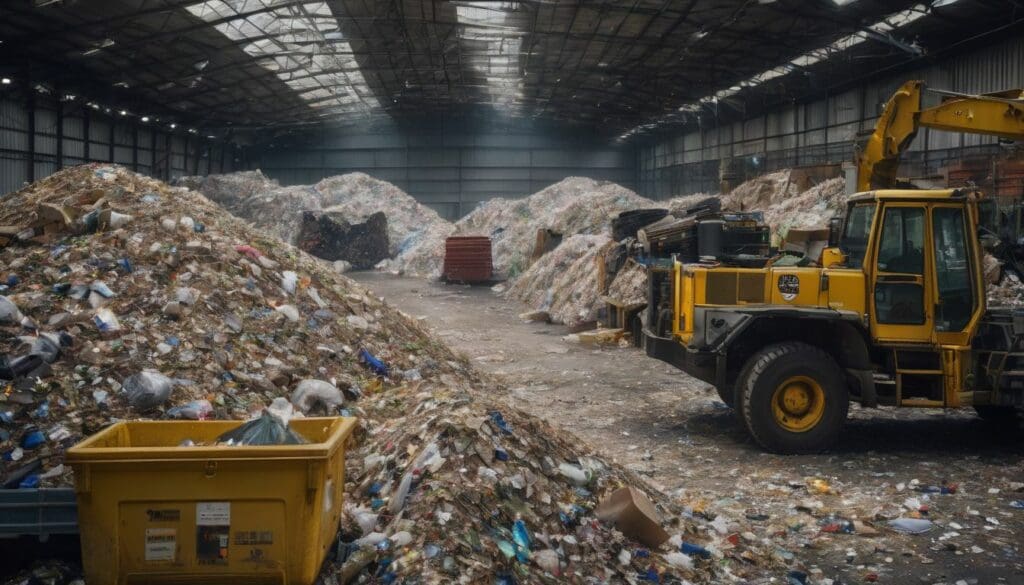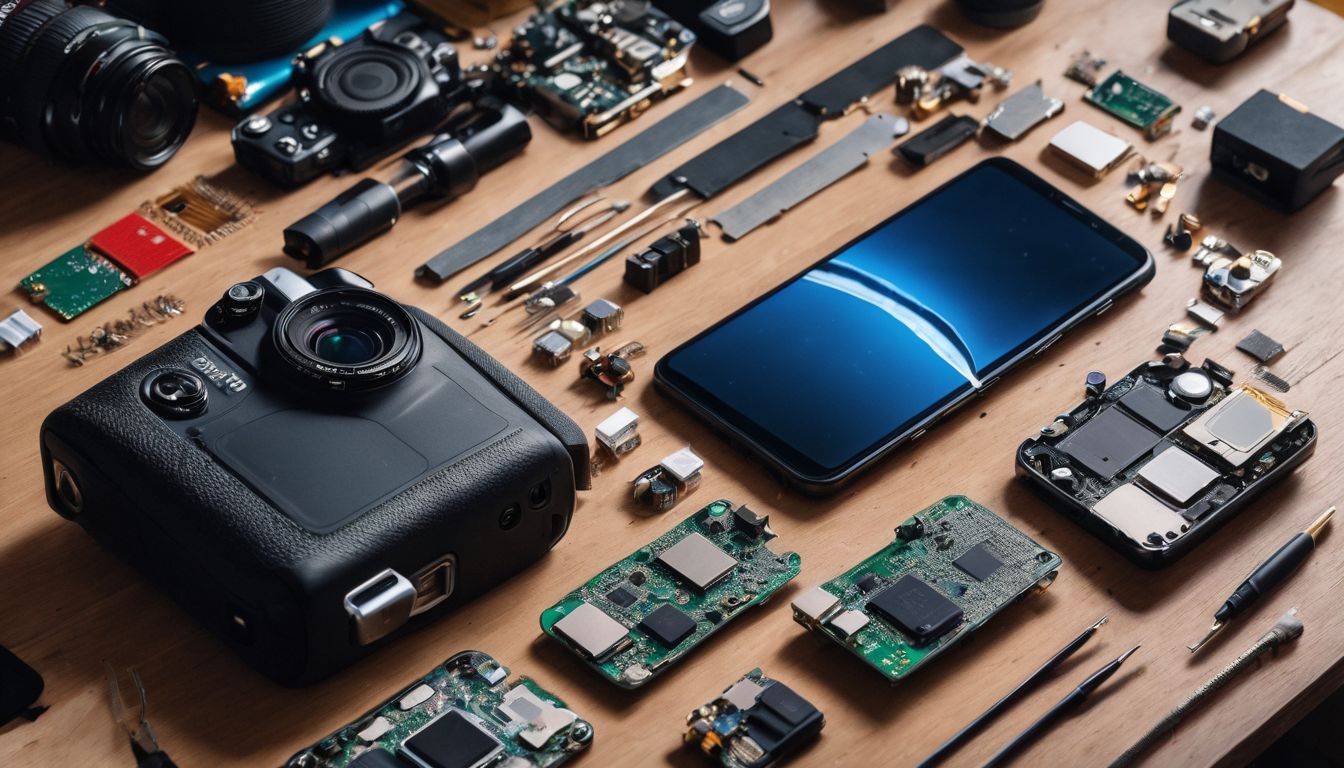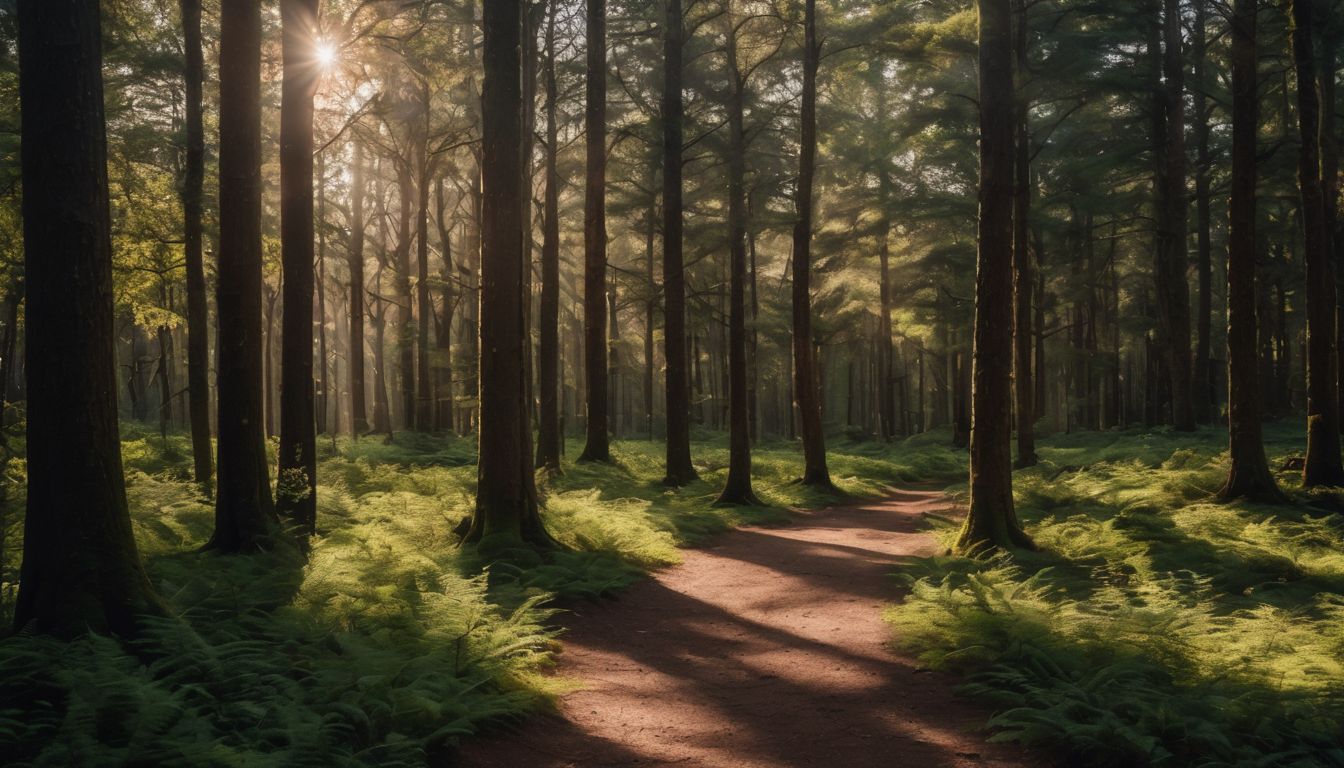Every day, we are confronted with the minor quandary of dealing with our assorted bits and bobs that linger after the day’s activities. We empathise, truly, as we’re also navigating through clusters of items that simply seem too precious for the rubbish bin.
In this post, let us escort you on a journey to unearth the hidden gems in what might otherwise be dismissed as waste. Join us as we delve into transforming your seemingly trivial leftovers into a collection brimming with potential!
Key Takeaways
- Trash Talk aims to tackle the environmental problem of waste by viewing it as a valuable resource, significantly reducing what ends up in landfills and promoting recycling, reuse, and sustainable practices.
- Innovative solutions such as single stream recycling simplify the process for people, dirty MRFs use technology to sort through mixed recyclables efficiently, and various other methods facilitate effective waste management.
- Historical insights reveal that from ancient rubbish pits to today’s Great Pacific Garbage Patch, improper waste disposal has always been an issue; understanding this can motivate current efforts towards sustainable waste handling.
- The US is one of the leading producers of trash, highlighting the importance of initiatives like Trash Talk which advocate for creative approaches to recycle old jewelry and repurpose microplastics.
- Composting organic matter creates nutrient – rich soil while diverting waste from landfills; likewise donating old jewelry or gaming gear supports not just recycling but also community sustainability efforts.
The Impact and Problem of Waste
The growing issue of waste in the 21st century poses a significant environmental problem, with the US being one of the top rubbish-producing countries. From landfills to the Great Pacific Garbage Patch, our excessive waste is causing pollution and resource depletion.
Growing issue in the 21st century
As we charge into the 21st century, waste is quickly becoming one of our biggest challenges. We throw away staggering amounts of trash every single day and it’s not just an eyesore – it’s a real threat to our planet.
Landfills are overflowing, plastic clogs our oceans, and e-waste piles up as tech gadgets go out of style faster than ever. Our project ‘Trash Talk’ tackles this head-on by transforming old or broken items that might otherwise clutter landfills into valuable resources.
We’ve got to start seeing rubbish in a new light if we’re going to fix this mess. It’s time for all of us – passionate gamers and novices alike – to level up our environmental game.
By donating those tangled pieces of jewelry or sorting out microplastics from beach sands, every little bit can help make a difference. And sometimes gaming gear can join the recycling adventure too! Next up, let’s delve into the fascinating history behind all these heaps of waste.
The US being the top rubbish-producing country
The US leads the world in rubbish production, generating more waste than any other nation. Rubbish Talk emphasises the need for sustainable practices as we aim to shift this trend and redefine waste as a valuable resource.
Through recycling, reusing, and efficient waste management, we can reduce our impact on the environment and contribute to a more sustainable future.
Rubbish Talk’s focus on renewing old jewellery for reuse within its project aligns with addressing America’s highest trash-producing status. Additionally, combating microplastic pollution through recycling is one of the project’s initiatives that will help reshape global perceptions towards waste while minimising environmental harm.
The History of Rubbish
From Minoan rubbish pits to the Great Pacific Garbage Patch, the history of rubbish is a long and concerning one. Throughout time, human waste has been accumulating and impacting our environment in alarming ways.
https://www.youtube.com/watch?v=lyGEXtg4flk
From Minoan rubbish pits to the Great Pacific Garbage Patch
- The Minoans in ancient Crete were known for creating rudimentary rubbish pits to dispose of their waste, providing insight into early human waste management practices.
- As time progressed, societies witnessed a shift from localised waste disposal to larger-scale concerns, culminating in the formation of vast accumulation zones such as the Great Pacific Garbage Patch. This illustrates the magnitude of modern-day waste management challenges.
- The Great Pacific Garbage Patch is an area in the North Pacific Ocean with high concentrations of microplastics and other debris, highlighting the global impact of improper waste disposal and plastic pollution.
- Trash Talk delves into the historical context of these developments, emphasising the need to confront and address current waste management issues through sustainable solutions.
Rethinking Waste As A Valuable Resource
We will explore the concept of single stream recycling, utilising dirty MRFs, and different ways to sort waste as we redefine waste as a valuable resource. Join us in discovering the innovative solutions for managing waste.
The concept of single stream recycling
Single stream recycling is a method that allows all recyclables to be collected together in one bin, simplifying the sorting process. This approach reduces contamination of materials and increases the efficiency of recycling collection.
It encourages individuals to recycle more by making the process easier and convenient, ultimately contributing to a cleaner environment. Single stream also promotes cost-effective waste management solutions, diverting more materials from landfills and incinerators.
By embracing single stream recycling, we can effectively decrease the amount of waste sent to landfills while conserving valuable resources for a sustainable future. The ease and accessibility of this approach make it an essential part of redefining waste as a valuable resource.
Utilising dirty MRFs
Trash Talk promotes the utilisation of dirty MRFs, which are Material Recovery Facilities that process mixed recyclable materials from residential and commercial waste. These facilities use advanced sorting technologies to separate different types of materials such as paper, plastics, metals, and glass.
By incorporating artificial intelligence and robotics, dirty MRFs can efficiently sort through contaminated or soiled items that traditional recycling plants may struggle to handle.
Ultimately, this approach contributes to the circular economy by diverting more waste from landfills and reducing environmental impact.
Different ways to sort waste
To effectively sort waste, we can employ a variety of methods to ensure the valuable resources are salvaged and reused. Here are some ways to sort waste:
- Utilising single stream recycling: This method involves collecting all recyclables in a single bin, making it convenient for people to recycle without the need for sorting.
- Implementing dirty MRFs: Material recovery facilities (MRFs) use advanced technology to separate mixed waste into different materials, maximising recovery and minimising landfill diversion.
- Introducing artificial intelligence in waste sorting: AI technologies can be employed to improve the efficiency and accuracy of waste sorting processes, leading to better recycling outcomes.
- Embracing upcycling initiatives: Reimagining and repurposing discarded items into new products or materials can significantly reduce the amount of waste ending up in landfills while promoting environmental sustainability.
- Engaging in source separation: Encouraging individuals and communities to separate their recyclables, compostables, and refundables at the point of disposal helps streamline the recycling process.
- Promoting environmental conservation through proper disposal management: Educating people about the responsible handling of hazardous or non-recyclable waste ensures minimal environmental impact from these materials.
- Supporting renewable energy production from organic waste: Composting organic waste not only reduces landfill emissions but also generates renewable energy through anaerobic digestion processes.
Solutions for Managing Waste
Composting, recycling, and donation are just a few ways to manage waste effectively while also helping the environment. These solutions play a crucial role in redefining waste as a valuable resource.
Composting
Composting is a natural process that turns organic waste like food scraps and garden clippings into nutrient-rich soil. It reduces the amount of waste sent to landfills and helps the environment.
- Food Waste: Decomposing fruit and vegetable scraps, coffee grounds, eggshells, and nutshells are great for composting.
- Garden Waste: Leaves, grass clippings, and plant trimmings can be added to the compost heap.
- Creating a Compost Heap: Layer organic materials with soil to create a balanced mix that requires regular turning to aerate and speed up decomposition.
- Vermicomposting: Using worms to break down food scraps is an efficient way to produce nutrient-rich compost.
- Benefits of Compost: The resulting compost can be used as a natural fertiliser for plants and gardens.
Recycling
- Recycling reduces the amount of waste sent to landfills and incinerators, thus lessening the negative impact on the environment.
- It conserves natural resources such as water, minerals, and timber by reusing materials like paper, plastic, glass, and metal.
- By recycling electronic waste, valuable metals like gold and silver can be extracted for reuse.
- Recycling helps to decrease greenhouse gas emissions by reducing the need for raw material extraction and production processes.
- The process of recycling also creates job opportunities in areas such as collection, sorting, processing, and manufacturing.
Donation and reuse
Trash Talk encourages the donation of old and broken jewelry, which are then repurposed for the project. This approach promotes the reuse of materials that would otherwise be discarded as waste.
- Donations of old and broken jewelry provide a sustainable source of materials for creating new items.
- Reusing microplastics from old gaming accessories reduces the environmental impact of these materials.
- The project demonstrates how donated items can be transformed into valuable resources through innovative recycling processes.
- Donating unwanted gaming peripherals fosters a culture of sustainability within the gaming community.
- Reusing electronic components from outdated devices promotes responsible disposal practices and reduces e-waste pollution.
- The project accepts donations to support its mission of redefining waste as a valuable resource in the 21st century.
Conclusion: The Importance of Redefining Waste
In conclusion, redefining waste is crucial for a sustainable future. We can all play a part in minimising our environmental impact by embracing the concept of waste as a valuable resource.
By rethinking our approach to waste management and promoting recycling and reuse, we can create a positive change for our planet. It’s time to see waste in a new light and work towards innovative solutions that benefit both the environment and society.
FAQs
1. What does “Trash Talk” mean in the context of waste management?
“Trash Talk” refers to the concept of discussing and re-evaluating waste as a valuable resource that can be reused or transformed, rather than just thrown away.
2. How can we redefine waste as a resource?
We can redefine waste by recycling, composting and finding creative ways to repurpose items that would otherwise end up in landfills, seeing them as potential materials for new products.
3. Are there benefits to viewing trash differently?
Yes, viewing trash as a resource helps reduce landfill use, saves energy and raw materials, and even creates jobs around recycling and manufacturing with repurposed waste.
4. Can everyone participate in “Trash Talk”?
Absolutely! Everyone from individuals to big companies can take part in “Trash Talk” by making better choices about reducing, reusing, and recycling their waste.





